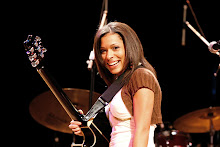For: The Institute Of Contemporary And Emerging Worship Studies, St. Stephen’s University,
Essentials Blue Online Worship Theology Course with Dan Wilt
Responsibility is a wonderful thing; a sign of maturity, importance and purpose. Responsibility helps us to care more deeply about the thing for which we are responsible. Being created in the image of God gives us a responsibility to be worship leaders in Creation, and being worship leaders gives us a responsibility to worship in truth (being theologically true). What a privilege it is to have such influence on the world around us!
As human beings we are made in the image of God (Imago Dei, Genesis 1:26-27). In the What is Worship DVD Dan Wilt uses the word “tselem” meaning “image or likeness”. With this is mind, we are called to be what N. T. Wright called the “lead worshippers”. I guess worship leading starts as soon as we come into existence as human beings! Our responsibility according to Wright is to reflect God’s presence into the world and then take Creation’s praises and bring it back to God. I’ve never thought about it this way and it really broadens my definition of a worship leader! If worship truly is a “whole life thing” then this definition makes way more sense than just “it’s what we do on Sunday morning.”
In the material we’ve covered this week, what snatches my attention is the weight of the responsibility we have as worship leaders. Being theologically sound is absolutely necessary! We have such a HUGE influence on people. As we heard this week, people remember songs better sermons.
Bono from U2 is a fabulous example of the power a musician holds. I went to see the U2 concert they were showing in the IMAX theatre and the thing that struck me the most about the show was the way he had the audience in the palm of his hand. His music gave him a platform to fight world hunger and speak at a national prayer meeting!
In the Old Testament musicians were so important that they were exempt from other tasks so that they could continue making music: “Those who were musicians, heads of Levite families, stayed in the rooms of the temple and were exempt from other duties because they were responsible for the work day and night.” (1 Chronicles 9:33)
My downfall in recognizing my responsibility is that I often just trust in the songwriter’s ability to write a theologically sound song without actually stopping and thinking “well, do I REALLY know what the song means?” Then I’m struck by how much I still need to learn. In Hebrews 6:1-3 it says “Therefore let us leave the elementary teachings about Christ and go on to maturity, not laying again the foundation of repentance from acts that lead to death, and of faith in God, instruction about baptisms, the laying on of hands, the resurrection of the dead, and eternal judgment. And God permitting, we will do so.” The passage talks about moving beyond these “elementary” things but do I even fully understand those yet?
I am thankful for the responsibility find out Truth. It was has helped me to ask more questions. Questions lead to wonder and wonder leads to worship. As Tim Hughes quoted of someone, “When wonder is dead the soul becomes like a dry bone.”
Friday, July 4, 2008
Subscribe to:
Post Comments (Atom)

4 comments:
I think many of us are in that same boat, Chelsea. Each week we pick songs for various reasons, but probably seldom do we consider that we are in charge of what people are going to say to God for the next 20-30 minutes.
We are sort of like the captain of the ship. We are all (the congregation included) doing work on this ship, but the responsibility of steering falls ususally to one person (or at least a small number of people... I'm not sure exactly how it works on a ship, lol). It's pretty heavy when you think about it like that.
Great thoughts here Chelsea. The gift of art is that we can say the same thing (the content or idea) in 10,000 ways (the form or shape of the art).
As a writer and artist, know that "truth is self-revealing; tell it in a thousand stories" is true. We don't need to mention one part of the Trinity in every piece we write. We can poetically give voice to a creation in celebration, in desperation, in hope, in despair.
The call of the artist who follows Jesus is to do so from a high mandate - to join in the formation of people's thoughts about God.
That can happen if one song paints a very dark, and unresolved picture of a girl who wants to take her life, and then three songs later, the same artist brings a stunning depiction of hope for the hopeless.
I.e. We have a wide artistic field to play within as Christians who are artists.
As a worship leader, the context is different, and some of the song/lyric choices should meet the context, but we still have room to move.
Well done.
I was struck by this line "I guess worship leading starts as soon as we come into existence as human beings!"
I was reflecting on a similar idea when I listened to N. T. Wright talk about our role in worship. It is definitely a paradigm changer.
Post a Comment